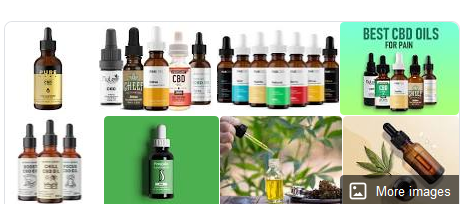Skip to content
- 39% of CBD users are between the ages of 18-34.
- One of the fastest-growing CBD market segments is the veterinary sector.
- The accuracy of CBD labeling needs to be improved, as testing has shown there are major accuracy concerns within the CBD market.
- In 2018, the CBD market was $620 million. By 2023, it is projected to grow to $23.7 billion.
- 64% of seniors who try CBD say it helped them.
- 14% of Americans have used CBD as of August 2019.
- 28% of all CBD users use the product on a daily basis.
- Testing shows the potential for CBD to be used on a wide array of disorders and health challenges.
- The fact that 39% of CBD users are so young shows just how much growth potential the CBD industry has. 18-34-year-olds are among the most consumer-friendly demographics. Since they are young, it can be assumed that they have a long life ahead of them, potentially creating a long-term market for CBD users. This also skews the marketing tactics that CBD realtors need to use in order to capture this market, as messages that may appeal to older demographics will certainly not appeal as much to younger ones. Last, since this demographic tends to make more purchases on the internet and through their mobile device, markers must have active and robust websites that are capable of reaching this demographic.
- The veterinary CBD market is projected to reach $125 million by 2022. This comes as a reflection of the increasing amount of research being done on CBD and its potential impacts on animals. More study is unquestionably needed, but limited studies have shown that CBD may be beneficial for dogs when it comes to reducing seizures and decreasing pain. If CBD becomes a formally prescribed compound for dugs in the future, the growth rate of this market will become more popular than ever before.
- A 2017 study tested 84 CBD products and found that 21% of them actually contained more THC than labeled. This could be a major problem, as some people cannot consume THC due to legal or professional requirements, and the consumption of improperly labeled CBD could have major ramifications on their life. Unfortunately, the Food & Drug Administration has yet to come out with labeling requirements for CBD. In order to boost consumer trust, many CBD companies are turning to independent analysis as a way of providing independent verification of the ingredients in their CBD.
- The projected five-year growth of CBD is nothing short of remarkable and has resulted in many business analysts to refer to CBD as a new gold rush. This label is incredibly accurate. The demand for CBD is absolutely through the roof, and market supply is rising in order to continue to sell the product. However, that comes with concerns. As noted above, the U.S. Food & Drug Administration has yet to issue many necessary consumer protections on the product, giving rise to poorly made products and potential dangers for consumers. The demand for CBD will continue to rise, but so will the chances of consumers buying bad products.
- As noted above, more young people than seniors use CBD. However, 64% of seniors who tried CBD said that it had a positive impact on their life. This makes sense, as seniors suffer from many of the problems that some studies have found CBD to be helpful in addressing, such as chronic pain, arthritis, depression, skin disorders, and more. Indeed, seniors in the survey specifically cited pain reduction, improved sleep, and cognitive improvements as the areas of their life that CBD helped the most.
- A 2019 survey from Gallup found that 1 in 7 Americans – about 14% of the country – had tried CBD. This is an extraordinarily high number, and even higher when you consider that CBD was only legalized at the federal level in December 2018. Thus, in less than a year, 14% of Americans have tried CBD. This number gets even more remarkable when you consider that the survey was taken almost a year ago. Given the rising economic impact of CBD, it seems safe to say that the 14% number has only increased since then.
- Much of the growth of CBD can be explained by the fact that 28% of its users use the product at least once a day. This is important for obvious reasons: The more someone uses CBD, the more of the product they will buy. It can also be safely assumed that someone who uses CBD on a daily basis loves the product, is happy with the result, and more likely to discuss their satisfaction with the product with their friends and family. This, in turn, will encourage others to buy the product. Furthermore, CBD is expensive and tends to come in relatively small packaging. As such, it is very likely that people who use CBD buy a good amount of it.
- More research is needed, and only one CBD-based drug has been approved for prescription use. However, the studies which have been conducted show that CBD has the potential to help many physical and emotional problems, including anxiety, depression, migraines, addiction, cancer, and more. All of these positive studies make it more likely that further research will be conducted that may, in the long run, result in the approval of CBD-based drugs for numerous problems. If this is the case, it stands to reason that the CBD market’s growth will accelerate even more than its current breakneck pace.
